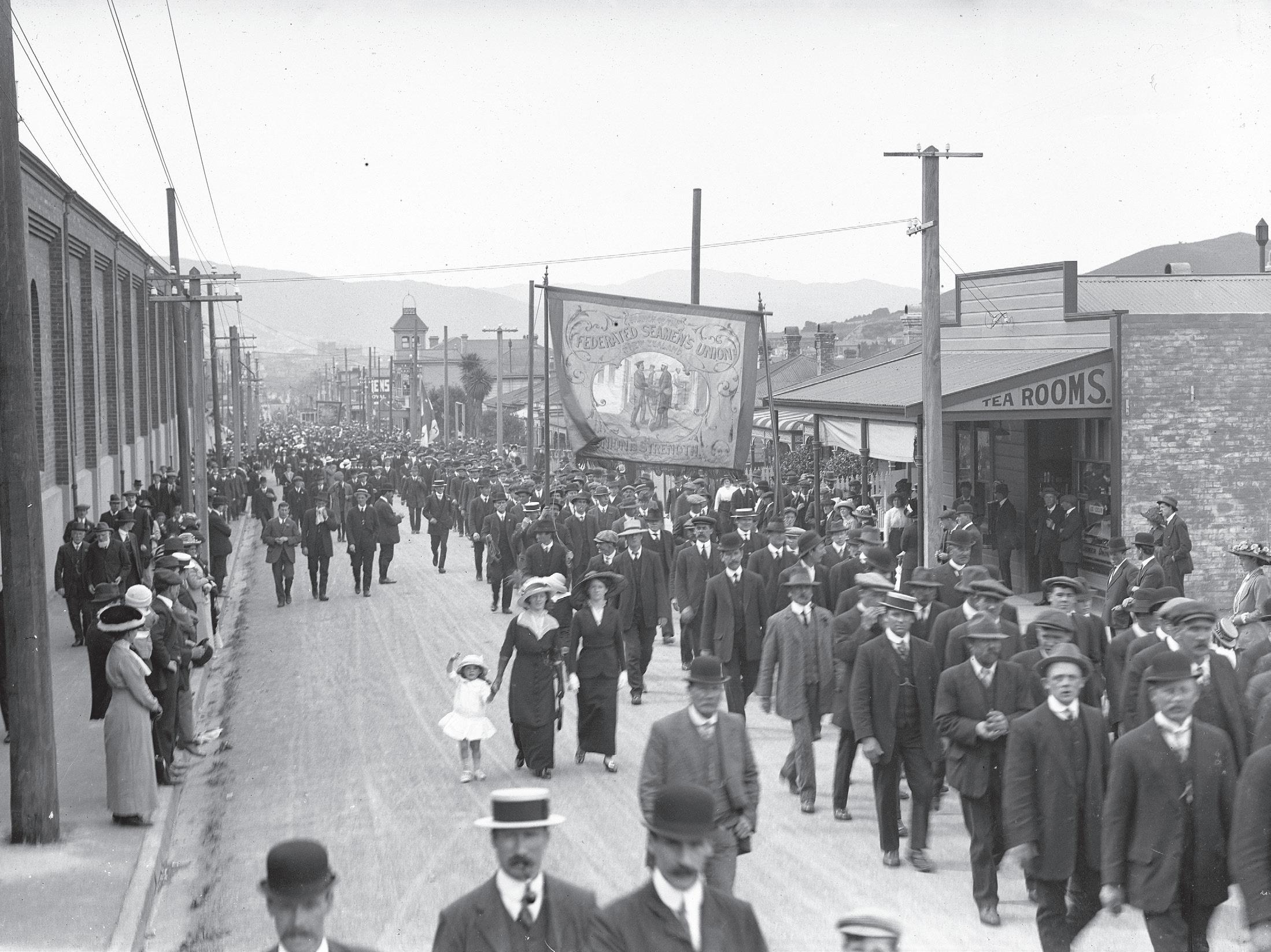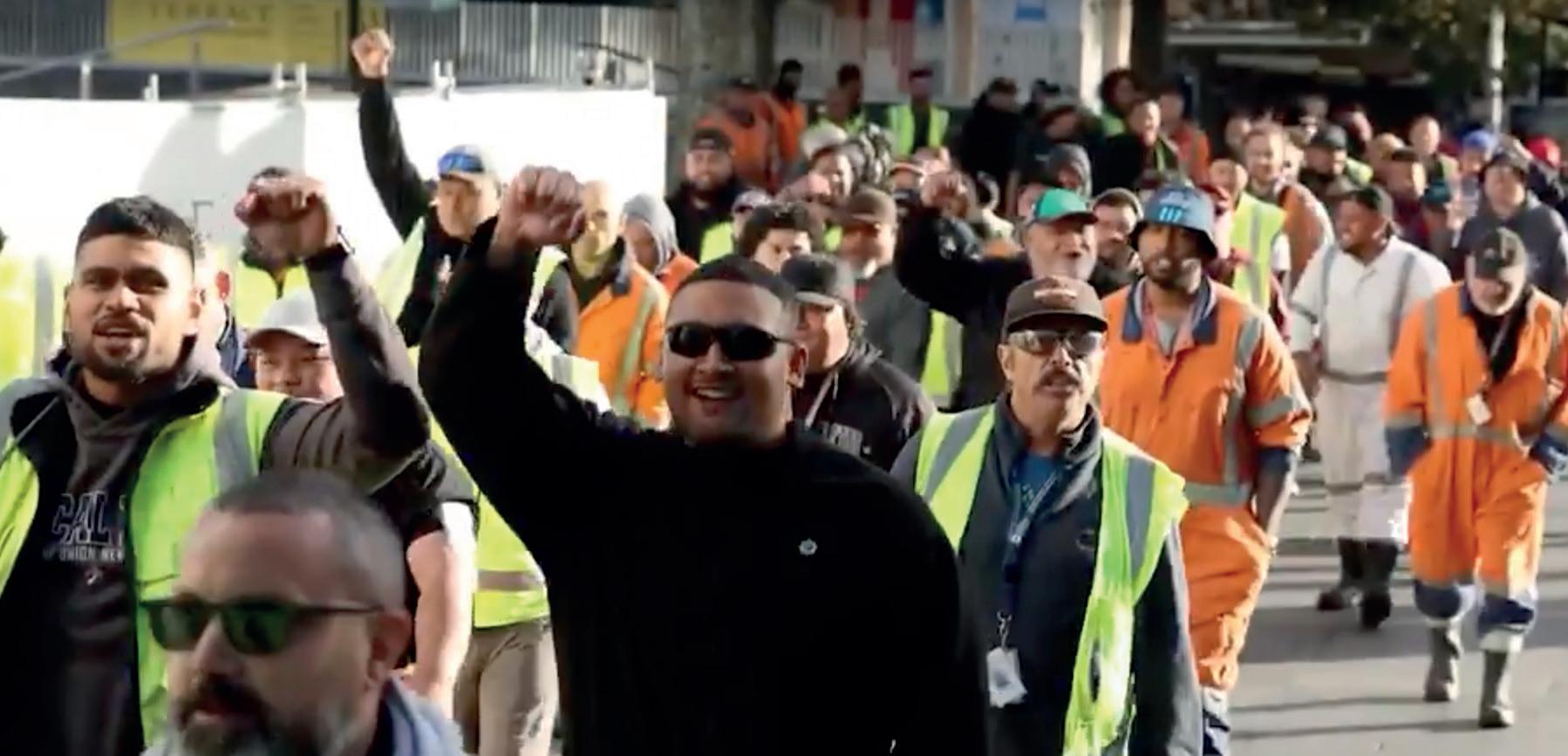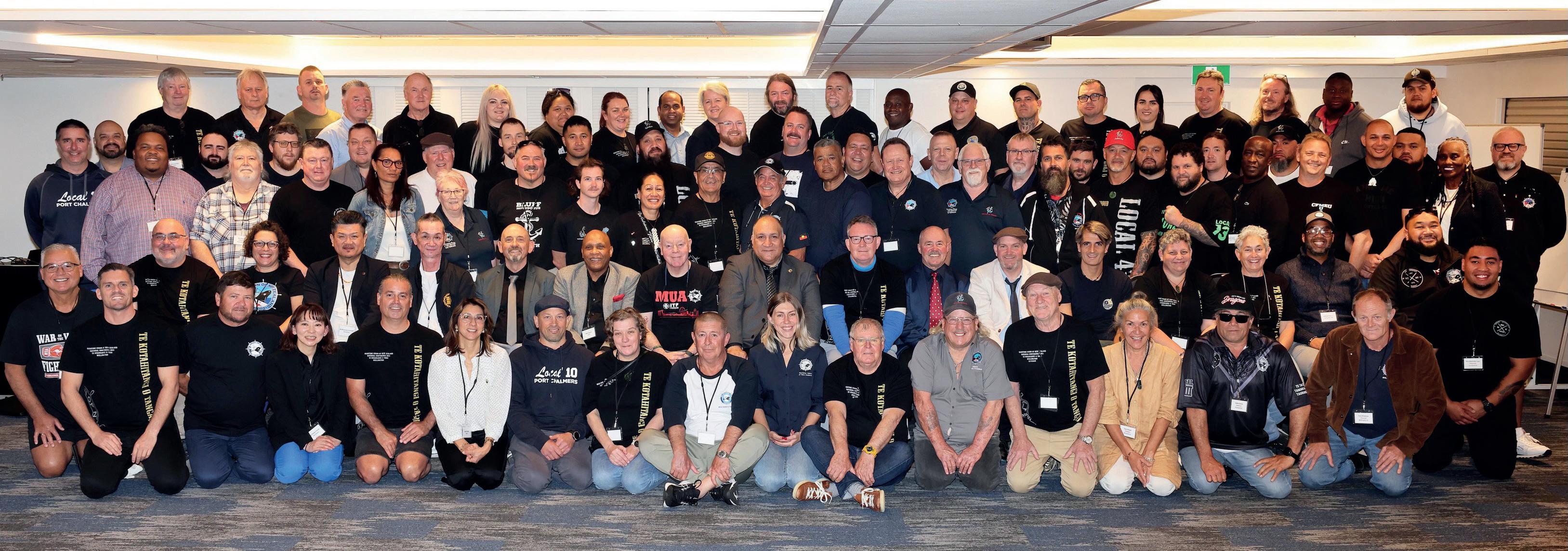










May Day is a global day of defiance, a shout of solidarity from the working class! Every year on 1 May, workers around the world remember the battles fought for our basic rights.
Across the world, May Day is a day for workers to take to the streets and to show our collective power to resist and overcome ongoing injustices. We use May Day to promote our demands of fair wages, safe conditions, and a life free from exploitation.
May Day is the beating heart of the global labour movement. It’s not just history, it’s a living call to arms. On May Day we remember the past, celebrate victories, and, most importantly, organize for the struggle ahead.
May Day is a reminder that the rights we have were not gifts from employers. They were fought for and won by those workers who came before us. Now we have an obligation to protect and advance these rights for those who come after us.
Authorised

Seamen’s Union members and supporters march in Wellington during the 1913 Strike
The fight for May Day was forged in the fire of the 1886 Haymarket Massacre in Chicago.
On May 1st, 400,000 US workers, mostly in Chicago, demanded an eight-hour workday.
In those times, 16-hour days in deadly conditions were the norm. The bosses and their police were determined to keep it that way.
When police murdered unarmed strikers on May 3rd, a protest the next day in Haymarket Square was bombed, leading to more violence and deaths on both sides.
This wasn’t just a riot, it was a brutal crackdown on workers.
In 1889, the socialist and union movements declared May 1st a day to remember Haymarket and to continue the fight for working class rights with a global day of action.
The most important word in the language of the working class is “solidarity.”
A quote from Harry Bridges (1901–1990), the Australian born leader of the North American west coast dockers union the ILWU.
North Island Rallies
Thursday 1 May 2025 12–1pm
Whāngarei – Tarewa Park
Auckland – Manukau Plaza
New Plymouth – Huatoki Plaza
Mt Maunganui –
Hopukiore (Mt Drury) Reserve
Wellington –Frank Kitts Park

South Island Rallies
Thursday 1 May 2025
Nelson – 1903 Square (Top of Trafalgar St) 12.30–1.30pm
Christchurch –Addington Raceway 12–1pm
Dunedin –Museum Reserve 12.30–1.30pm
Invercargill –Workingmens Club 12.30–1.30pm
In 2025, workers and our Unions in Aotearoa face a hostile Government intent on rolling back every gain we’ve made.
A recent survey of workers lays bare the anger at rising workloads, stagnant wages, and a deep distrust of management and the current Government. Funding cuts and restructuring are pushing workers to breaking point.
Housing is a nightmare, healthcare a lottery. The message is clear: the system is rigged against workers.
The current Coalition Government is prioritizing corporate profit over the wellbeing of people.
Forums and national meetings are being organized to build resistance. Unions are fighting to protect and advance our rights as workers.
While this Government talks of a “stronger economy,” we see them dismantling protections that ensure a decent life.
May Day 2025 will be a crucial moment. It’s time to change the system, not just make tweaks to a broken system.
May Day is a powerful symbol of the ongoing struggle between labour (the working class majority) and capital (the wealthy class minority).
It remembers the sacrifices of the past and fuels the struggles of the present.
Workers have to educate ourselves on our past. If we don’t know where we have come from – we can’t control where we are going.
In 2025, May Day will be a vital day for unions and the workers movement in New Zealand and across the world.
A day for international solidarity, for taking action, and for boldly declaring our vision of a world where workers are truly free.

The working class are people who have to sell their labour to survive because they don’t own the means of production.
Let’s break that down:
“Sell their labour”: You work for a wage or salary.
Your income comes from being employed by someone else, and being an employee. MUNZ members are employees of a business – so we are part of the working class.
“Don’t own the means of production”: This is the key part. If you are working class you don’t own the things used to create wealth – things like factories, land, machinery, large businesses, or significant amounts of capital (money used to invest and make more money).

You might own personal property like a house, or have some investments such as your Super fund, but you don’t make a living off those.
Essentially, the working class don’t own stuff that allows you to make money without working for someone else.
Because you don’t own these things, you must work for a wage to earn a living (this is probably a privately owned business or corporation, or sometimes the Government.)
You are reliant on your employer for your livelihood. This creates an inherent power imbalance.
A political and economic movement and theory for ‘common ownership’ and ‘common benefit.’
The means of production, distribution, and exchange (businesses, industry, infrastructure) should be owned or controlled by the workers and the community as a whole, rather than private individuals.
The New Zealand Council of Trade Unions Te Kauae Kaimahi (NZCTU) unites 320,000 New Zealand union members in 27 affiliated unions, including the Maritime Union.
Solidarity means unity and support between individuals with a common interest.
In our Union, we have solidarity with each other and with other workers because we are all workers who want the best wages and conditions, and a better future.
The NZCTU is the united collective voice for working people and their families in New Zealand. It is the voice of the combined unions and their members.